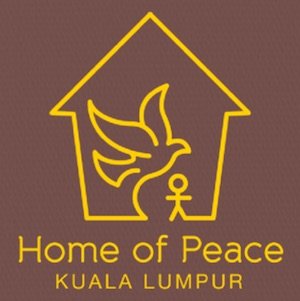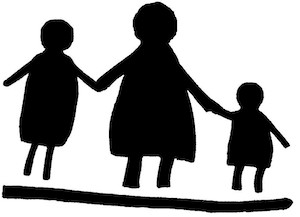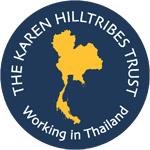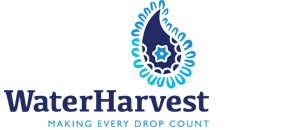Projects We Support
Meal-a-Day works in partnership with communities on the ground and well-established organisations which share a similar work ethic and objectives to us.
Location
Tamil Nadu, India
Project Type
Nutrition, Healthcare
Partner Since
2007
Funded Last Year
$32,000
The Ayries Society clinic is situated around an old port town in the district of Cuddalore in Tamil Nadu, in south-east India. Cuddalore, meaning “sea town” in Tamil, is well renowned for its impressive beaches and mangrove forest; yet, in recent times, industrial growth has tarnished this image with that of a polluted city, slowly taking its toll on the local community. TB and HIV/AIDS are two critical conditions suffered by the local population. In October 2011, the Times of India reported that one in four deaths among people with HIV/AIDS was due to TB.
In the rural areas of Tamil Nadu, HIV/AIDS and Tuberculosis (TB) are common diseases and, due to poor nutrition, the mortality rate is high. HIV sufferers often have TB as an opportunistic disease which increases the mortality rate. TB and HIV patients need good nutrition to increase drug effectiveness, make the drug regime bearable physiologically and to reduce the financial pressure on stretched families supporting a family member suffering from a long-term illness. Additionally, improving the nutrition of families where there is a TB sufferer lowers the risk of TB transmission to the children.
CMaD has been supporting Ayries’ work of diagnosing and providing nutrition for people living with HIV/AIDs and TB for many years, and it is estimated that more than 1000 individuals have benefited from the programme due to CMaD’s support.
The partnership with Ayries Society was originally established with the UK Meal-a-Day Fund – we have been pleased to continue the working relationship since it was transferred to Asia-Pacific in 2007.
The programme only covers a small proportion of the need in the region and new cases are occurring at a rate of 300 new cases per month just in the Cuddalore District. Much more can be done in relation to early detection, with your support.
Location
Rajasthan, India
Project Type
Sanitation, Infrastructure
Partner Since
2011
Funded Last Year
$45,000
This project aims to permanently lift farmers out of poverty by implementing viable low cost, sustainable water solutions. These solutions increase farmers resilience to water scarcity and give them the skills necessary to grow enough food to feed themselves and their families.
Specific objectives are to:
1. Increase the capacity of the community to use the limited water resources efficiently, and
2. To install 660 water efficient drip and spray irrigation systems
Farmers who have installed irrigation systems as part of this project report significant direct benefits including:
• Reduced water usage and cost of irrigation
• Being able to plant more crops per year
• Decrease in diesel costs by more than 20%
Safe, accessible drinking water for people and livestock is being provided through well replenishment and construction, rainwater harvesting and education about sanitation and hygiene. Improved farming practices are being encouraged through the establishment of sustainable irrigation systems, the promotion of water saving devices and educating people about ways to increase farm productivity by working in harmony with the land. Local communities are involved in the projects through committees and self-help groups.
Our project partner, WaterHarvest, is a well recognised NGO which is dedicated to improving the lives of those in Rajasthan and Madhya Pradesh. They run a range of programs that focus on education, health-care, sanitation, livelihoods and natural resources management for the less fortunate in society.
Location
Karnataka, India
Project Type
Nutrition, Healthcare
Partner Since
2020
Annual Budget
$TBA
The Covid19 pandemic caused intense hardship across the globe and was particularly devastating for poor communities that lack the financial and medical resources to combat the disease. 40 million poor migrant workers in India were been disproportionately affected by many lockdowns. Unable to work during lockdown restrictions, these already deprived workers were left devastated, with no income, no accommodation, and no safe way to return home.
India project co-ordinators Susan and Linus Daniel allowed CMaD to quickly engage a new project partner, Reaching Hand, and to support them in delivering a project to provide desperately needed supplies to migrant workers in and around Bangalore. Reaching Hand distributed basic food supplies, masks, and soap to families in the Rachanahalli and Kogilu Layout slums, two poor slum areas in south and north Bangalore. These slums were severely impacted by Covid, both economically and in terms of cases which spread rapidly in these densely populated areas.
Driven by the dire situation unfolding in India, CMaD focused funds donated during “May We Eat”, sending $10,000 in COVID relief funding to Reaching Hand in July 2021. This was an overwhelming response from our supporters, we were humbled and heartened that so many came forward to help.
Touring the Region
“I am reminded of the harshness that many communities have to face on a daily basis.”
Andrew King, Chairman

Home of Peace
Location
Kuala Lumpur, Malaysia
Project Type
Accomodation, Education
Partner Since
2011
Funded Last Year
$6,750
Home of Peace (HoP) has been a long standing beneficiary of CMaD funds. This is a private orphanage owned and operated by Justine Morais. Justine cares for children who do not have a family to look after them and who may be stateless and therefore not eligible for government support. The home is a well-run, government recognised establishment in a 3-level suburban house in Kuala Lumpur. The children are home-schooled to a British leaving pass standard, which provides a great start in life and gives them the opportunity to go on to higher education. This provides the predominantly young women at HoP an opportunity for employment and self-determination for the future.
The home has been a haven of safety, health and care for many girls over the years. We are also continuing to support HoP with medical insurance for the 14 girls and 1 boy who reside at the Home. This is a vital aspect of maintaining good health-care when needed urgently, as there is no Government funding for hospital visits. By covering the cost of personal medical insurance, HoP children are given priority care, receiving treatment sooner and spending less time away from home.
Of course, with growing children there is always a need for clothing and other personal items which our support can help to alleviate the costs.
HoP is still raising funds for an upgrade of the kitchen facilities as the current cooking facilities are outside due to fire risk. HoP is currently obtaining designs for the construction of an upgraded kitchen that must be approved by the relevant authorities before construction can commence.
Justine is a shining example of Christian care for those less fortunate and is dedicated to giving these orphans and abandoned children a more secure life.

Heritage Children
Location
Bhujel, Nepal
Project Type
Education
Partner Since
2010
Funded Last Year
$7,050
Bhujel is situated 27km from Kathmandu on the top of a mountain ridge which is 2,175 metres above sea level. Despite its proximity to Kathmandu, access to education is difficult due to the terrain and poor infrastructure. Families in Bhujel rely primarily on agriculture as their main source of income and often cannot afford to send their children to school. This makes it very difficult for the new generation to escape poverty.
The conditions in Bhujel became much worse in April 2015 when a large earthquake in Nepal destroyed homes in the village. Even four years after the earthquake, most homes remained desolate. This exacerbated a difficult situation, and many students had to leave home to continue studying in more distant schools.
The situation deteriorated further with the onset of the Covid-19 pandemic. In April 2020, schools were closed and the number of children living in poverty increased by a factor of four to approximately 6 million.
Project description:
CMaD has been working with Heritage Children since 2015 to help ensure basic education for deprived farming families in Nepal and especially children from the town of Bhujel. This is achieved via direct sponsorship of children to cover their educational costs which includes uniforms and meals.
The school year levels of the enrolled students range from early primary school to the final year of high school.
The program is managed by a Nepal-based couple who have over 20 years’ experience managing charitable projects. They oversee the selection of children for the programme, surveillance visits to Nepal, communications with the schools and the distribution of funding to the families.
Project activities:
Five new children were identified and started to receive support in October 2023 in addition to the five children already in the programme. Families receive 15,000 Nepalese Rupees (NPR) (~$AUD165) in 6-monthly sponsorship installments and the couple who administer the program receive an annual 20,000 NPR (~$AUD200) honorarium. In FY25 the project maintained the ten children in the scheme at an increased annual rate and also included funds to support the Nabin Gram Public School’s purchase of an educational interactive display screen.
Future opportunities:
This is an ongoing project and the plan is to increase funding by identifying new children whose families need support to keep them in school and to include them in the scheme.
Location
Mae Hong Son Province,
North West Thailand
Project Type
Education, Transport, Nutrition
Partner Since
2007
Funded Last Year
$37,650
Mae Hong Son is a remote province situated on the Myanmar and Northern Thailand border. About 64% of the population of Mae Hong Son live below the poverty line, many of whom belong to marginalised ethnic minorities such as the Karen.
Karen communities have limited access to basic socioeconomic services such as healthcare and education, and a disproportionate majority depend on subsistence agriculture for their livelihood.
Getting to school can be a challenge for Karen children who live in poor conditions in the remote mountainous region of northern Thailand. Most villages have a primary school within 10 kms of the village, secondary schools can be 50 kms away and High Schools even further.
The expected impacts of the school transport project include:
- a higher number of children having access to education through the provision of school buses
- increased gender equality through parents allowing their daughters to take the bus rather than walking or hitchhiking to school
- improved child safeguarding, with safer access to school and children allowed to stay at home rather than being sent away to expensive boarding schools
Transforming community health through the provision of Water, Sanitation and Hygiene (WASH):
The WASH programme constructs gravity fed storage tanks and filters which, via a pipeline to villages, services free-standing taps that deliver a supply of clean water. The WASH programme also provides individual households with pour-flush single-pit latrines to cut down infections.
The goal of the WASH education programme is to transform community health and strengthen local capacity. By contributing to improvements to health and wellbeing, there is increased access to education, livelihoods and gender equality.
As previously reported, Northern Thailand has almost 50% of children with water-borne diseases and infection from intestinal parasites. This is why the KHT WASH programs are such an important area of CMaD’s focus.
Location
Dili, Timor Leste
Project Type
Nutrition, Education
Partner Since
2012
Annual Budget
22,000
Timor Leste is suffering a crisis of malnutrition having some of the highest rates of stunting in the world with 60-92% of the Timorese population not having enough nutritious food in their diet. In a highly productive land without famine, how can this be? One key element is knowledge. Poor access to quality food, a lack of nutritional understanding and poor agricultural practices drive stunting and wastage in children.
Our partner, HIAM Health, is a local NGO that supports the Timor Leste government in the fight against malnutrition. It was established in 2003 with a focus on empowering women and rehabilitating children.
The Nutritional Family Gardens project was an integrated project between HIAM’s Health and Horticulture teams, with the overall project goal to reduce the number of households in the village suffering from malnutrition.
Timor Leste has the worst child nutrition in the world.
Source: Page 23 of the Global Nutrition Report 2016
Timor Leste is a food insecure country, with one of the highest rates of child malnutrition in the world and 70% of the population living at subsistence level. Running water and electricity are considered luxuries, and 40% of the population lives on less than $1.25 a day.
The most significant barrier to expansion to commercial farmer group level of production is access to a reliable, year round water source.
Installation of water storage and water saving technology like water tanks and drip irrigation substantially improve sustainability while supporting higher yields.
HIAM Health was recommended by a colleague of our Asia-Pacific management team with first-hand experience of their work in Timor Leste. HIAM Health is a NGO based in Dili that provides education, rehabilitation and nutrition for families in order to reduce infant and maternal mortality and the social and economic conditions families are living in.
Location
Pokolon Paus, District of Ranau, Sabah, Malaysia
Project Type
Long Term Healthcare, Renewable Energy
Partner Since
2021
Funded Last Year
$25,000
The goal of this project is to provide clean, affordable, and reliable energy, while promoting socio-economic development through energy-enabled opportunities via the installation of a hybrid solar-hydro mini-grid at the village.
The project will upgrade an outdated 3kW micro-hydro system and integrate a 27kW solar PV system to create a reliable hybrid mini-grid for 39 households. At the heart of the initiative is the renovation of the community hall into a solar-powered Socio-Economic Development Center that will support food processing, handicrafts, and livelihood training for women and youth.
By enabling productive use of energy, the project will reduce reliance on diesel, lower household energy costs, and unlock income-generating opportunities. Twenty community members will be trained to manage the system and lead business activities through a Community Energy Management Committee.
The project is expected to displace diesel generators and result in energy cost savings from purchasing fuel, cutting costs up to 30%. The project also includes the protection of 50 hectares of watershed forest, ensuring long-term sustainability of the hydro system. This project builds on CMaD’s earlier contributions in Kampung Terian and continues the vision of climate-resilient, community-driven development in rural Sabah.
Project activities:
The main focus of the project is upgrading of an existing 3kW micro-hydro powered system and integrating a 27kWp solar PV system with battery storage. Activities to support this focus include:
- Joint planning with community members
- Renovation of the existing community hall that will hold the roof-mounted solar array,
- Testing and commissioning
- Train at least 20 community members in managing the hybrid system
- Monitoring for 12 months after the project is completed
Future opportunities:
Project funding was provided at the end of FY25 and implementation of the project will progress through FY26.







